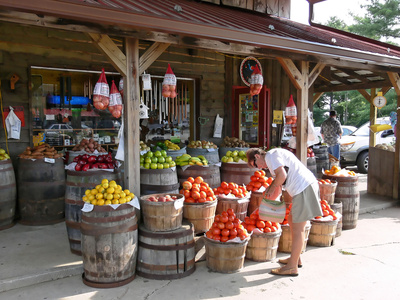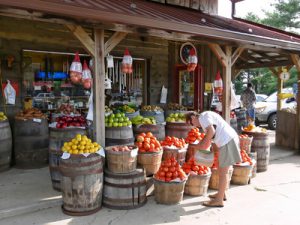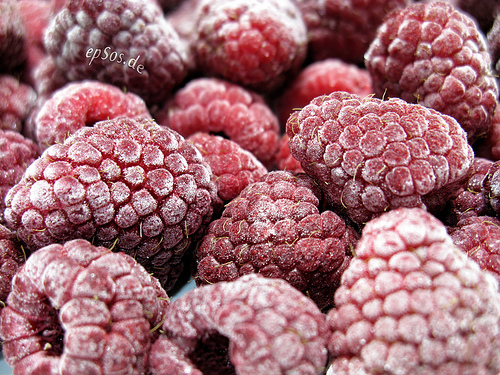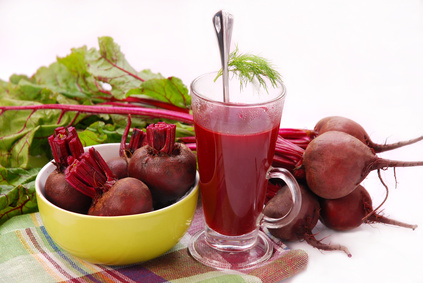
by Julian C.
Busy lifestyles often make it hard for us to get through all of our fresh produce. Whatever our reasons for throwing away vast quantities of fresh produce, the bottom line is that most of us throw away too much.
Of course, that isn’t to say we are all wasteful beings devoid of any sense of stewardship for the world’s food supplies.
Indeed, when bags of salad can be bought from the grocery store one day only to have turned brown by the next day, you’d be forgiven for throwing away some food from time to time.
But that doesn’t mean there aren’t ways in which we can cut back on how much we chuck out. Hopefully, the tips below will help you to do just that.
Storing Fresh Fruit and Vegetables
 It’s important to store your fresh fruit and vegetables in the appropriate place to make them last for as long as possible.
It’s important to store your fresh fruit and vegetables in the appropriate place to make them last for as long as possible.
A fairly exhaustive list detailing exactly where and at what temperature fresh produce should be stored at can be found here at organicauthority.com.
First the majority of fruit and vegetables are best kept in the fridge. For example, cauliflower, broccoli, carrots, apples, grapes, mangoes and strawberries to mention just a few should all be refrigerated if you want to keep them fresh for longer.
There are a few notable exceptions to this rule including bananas, avocados, potatoes and tomatoes. The latter in particular are especially not suited to the fridge because they will rapidly lose their flavour if kept there.
For potatoes, it’s worth storing them in a brown paper sack as opposed to the plastic bags.
Freezing Fruit and Vegetables
If you have more fresh produce than you will be able to eat, think about freezing some of it. Freezing fruit and vegetables doesn’t have to be purely reserved for the home grower with a glut of fresh produce.
Even if you just buy four corns on the cob or a slightly-too-big-for-one box of raspberries from the grocery store you could still freeze some and eat them at a later date if you know you’ll only end up throwing some away.
There are, however, a few tips to remember before freezing fruit and vegetables. Firstly, it’s a good idea to blanch (briefly boil for a few minutes) vegetables before freezing them as this will help them stay fresher and more flavoursome for longer.
Additionally, some fruit and vegetables shouldn’t be frozen altogether as they will lose their texture and flavour. In particular, this includes those with high water content such as melon, strawberries, cucumber and lettuce.
Best and Worst Buys
Irrespective of whether or not you store your fruit and vegetables in the correct places, you can also cut back on waste by shopping wisely in the first place. As far as fruits go, think about opting for apples and oranges instead of berries and pears for example.
The former – and apples in particular – will take a lot longer to perish and generally store well for a week at the very least; berries, on the other hand, can begin to look unappetising or even completely inedible three days after bringing them home from the shops.
Onions, potatoes and root vegetables such as carrots and turnips also keep better for much longer than the likes of spinach, mushrooms and peppers. It’s also worth buying a whole lettuce rather than pre-chopped and bagged lettuce – not only will it last a lot longer, it’ll be cheaper too.
Also, think about where you buy your fruit and veggies from. If you go to a farmer’s market rather than a large grocery store, the produce you buy will probably be fresher as a result.
Making Use of Old Fruit and Vegetables
Rather than chucking out your fruit and vegetables which looks a bit old and withered, try and make use of it in a recipe. Overly soft berries that you might have otherwise have thrown out will be ideal for a fruit jelly, crumble or smoothie.
Likewise, soft, brown bananas are also ideal for making a banana cake. Finding a way to make use of old vegetables isn’t hard either. If you’ve got a load of tomatoes which have lost their firm touch, then mush them down into a tomato soup – not only is this a frugal way to use old ingredients, it will taste nicer than soup from a tin too.
Making a stew of some sort is also a good way to use up any carrots, turnips or potatoes for example which you wouldn’t have otherwise eaten.
What do you do to make your fruits and vegetables last longer? Please leave your ideas in the comments below.
(This article has been provided by Julian over at frugaal.com. Frugaal is a site that provides reviews for a range of financial products. It also has a blog covering topics to do with frugal living and personal finance.)



